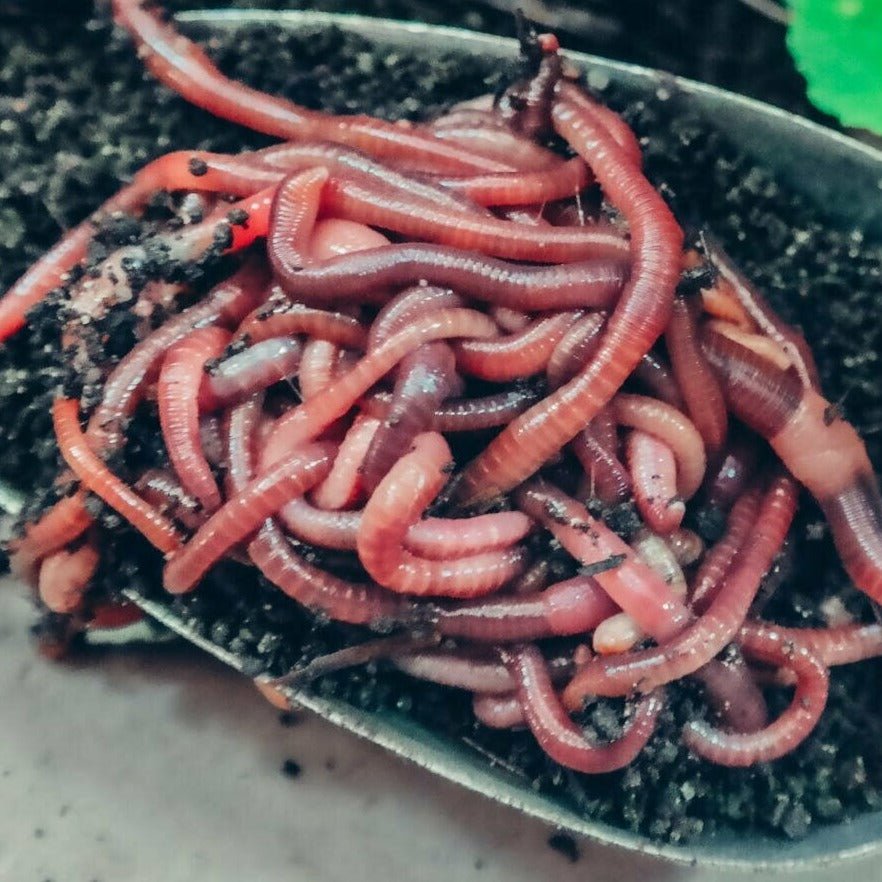Organic Composting with Red Wiggler Worms - Increase Your Yard's Growth
Organic Composting with Red Wiggler Worms - Increase Your Yard's Growth
Blog Article
Red Wiggler Worms Demystified: Opening the Keys of Vermiculture for Greener Living and Nutrient-Rich Soil
In the world of lasting practices for improving soil top quality and promoting eco-conscious living, red wiggler worms play a critical yet typically ignored duty. These modest animals have the amazing capability to change natural waste right into nutrient-rich castings that function as a potent natural plant food. By delving into the globe of vermiculture, one can uncover a huge selection of advantages that extend far past conventional composting techniques. Recognizing the ins and outs of taking care of these worms, maximizing their setting, and using their spreadings can lead to a greener lifestyle and healthier soil for plants to grow.
The Duty of Red Wiggler Worms
Red Wiggler worms play an important duty in composting systems by efficiently breaking down raw material into nutrient-rich spreadings. These starved eaters take in a range of natural materials, such as kitchen area scraps, yard waste, and paper products. As they feed, the worms' gastrointestinal procedures break down the raw material into a fine, dark, and nutrient-dense product referred to as worm castings or vermicompost.
The spreadings generated by Red Wiggler worms are highly advantageous for dirt health and wellness and plant growth. They are abundant in important nutrients like potassium, phosphorus, and nitrogen, which are crucial for supporting healthy and balanced plant growth. Furthermore, worm castings include useful microorganisms and enzymes that assist improve soil structure, rise water retention, and improve nutrient uptake by plants.
Advantages of Vermicomposting

It enhances soil framework, improves dirt aeration, and boosts soil dampness retention. Vermicompost likewise enriches the dirt with vital nutrients like phosphorus, nitrogen, and potassium, promoting plant development and overall dirt fertility.
Additionally, vermicomposting supports lasting horticulture practices by providing a chemical-free and natural option to artificial fertilizers. Red Wiggler Worms. This ecologically pleasant approach not just enriches the dirt yet likewise helps in reducing reliance on unsafe chemicals, promoting a greener and much more sustainable method of horticulture
Establishing Up a Worm Bin
When developing a worm container for vermicomposting, correct configuration is crucial to make sure the success of the composting process. The first step in setting up a worm container is picking an ideal container.
After including the bed linens, introduce the red wiggler worms to the container. It is suggested to begin with a little number of worms and slowly boost as they multiply. The worms ought to then be given with food scraps such as vegetables and fruit peels, coffee premises, and eggshells. It is necessary to avoid adding meat, dairy, oily, or salted foods to stop bring in pests and developing unpleasant odors.
Consistently monitor the moisture levels and temperature level in the worm bin to make sure optimum problems for the worms. With correct setup and upkeep, the worm bin will effectively transform organic waste into nutrient-rich garden compost for your plants and yard.
Collecting Worm Castings
To efficiently collect nutrient-rich worm castings from your vermicomposting system, page a methodical harvesting technique is necessary. There are a couple of key steps to comply with to make certain a successful process when it comes time to collect the worm castings. Quit adding fresh food scraps to one side of the worm bin for a couple of weeks prior to collecting. This encourages the worms to migrate sideways with fresh bed linens and food, making it much easier to dig the castings from the various other side.

Troubleshooting Common Issues
Recognizing and dealing with usual challenges that may arise throughout the vermicomposting process is crucial for keeping a efficient and healthy and balanced worm bin. One common problem that vermicomposters encounter is overfeeding. Including excess food scraps can bring about a build-up of moisture and level of acidity in the worm container, potentially harming the worms. To stop this, feed the worms in moderation, making sure that the food scraps are appropriately damaged down before including much more. Another concern is undesirable odors emanating from the worm container. Foul smells indicate anaerobic problems, commonly triggered by overwatering or poor air flow. To correct this, change the dampness degrees by including completely dry bed linen products like shredded newspaper or cardboard and boost oygenation by turning the bed linens regularly.
Additionally, if the worm populace is decreasing or the worms appear unhealthy, it can be as a result of environmental stressors such as severe temperatures or pH levels. Monitoring these factors and making necessary changes is important for the well-being of the worms. By fixing these common issues immediately, vermicomposters can make certain a effective and smooth vermicomposting procedure while maintaining a prospering worm populace.

Conclusion
To conclude, red wiggler worms play an important duty in vermiculture by breaking down natural issue right into nutrient-rich dirt. The advantages of vermiculture consist of greener living and boosted dirt top quality. Establishing a worm container is essential for successful vermiculture, and harvesting worm castings supplies beneficial compost for gardening. By recognizing and repairing typical concerns, individuals can open the secrets of vermiculture for lasting living and much healthier dirt.
As they feed, the worms' digestive procedures break down the organic issue right into a penalty, dark, and nutrient-dense material known as worm castings this page or vermicompost.
The spreadings generated by Red Wiggler worms are very useful for soil wellness and plant growth. Including excess food scraps can lead to a buildup of wetness and acidity in the worm bin, possibly harming the worms.Furthermore, if the worm population is decreasing or the worms appear undesirable, it could be due to environmental stressors such as extreme temperature levels or pH levels. blog Establishing up a worm bin is essential for successful vermiculture, and gathering worm castings supplies useful garden compost for horticulture.
Report this page